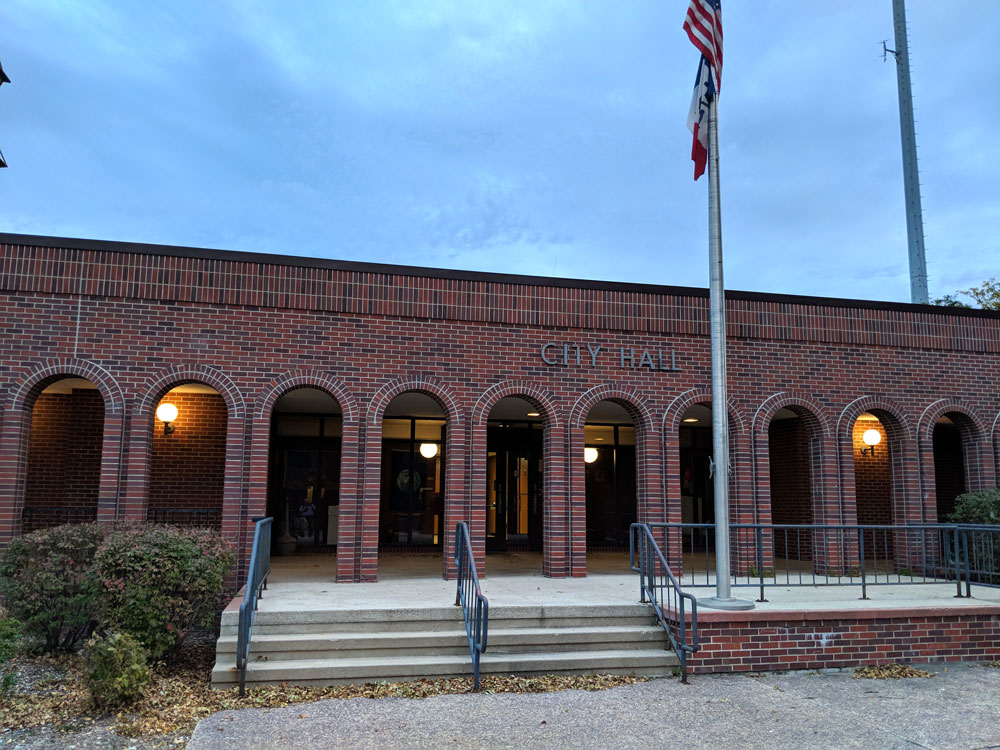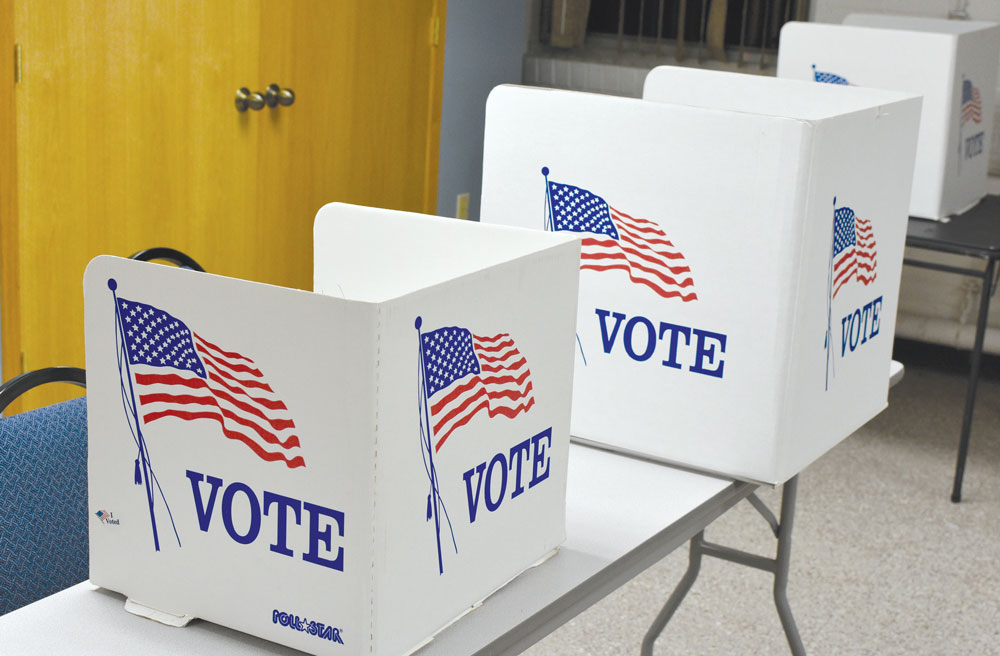Judge rules on myriad Lindaman motions
By Bob Steenson, bsteenson@charlescitypress.com
A district court judge has ruled on a dozen motions filed by the defendant in a retrial on a sex abuse charge, granting several of them regarding jury instructions but ruling against most of the others.

Douglas Lindaman, who is scheduled to begin a trial on a charge of third-degree sexual abuse on Feb. 20, filed a series of motions last summer asking the judge to rule on various aspects of the case including questions for potential jurors, the admissibility of certain witnesses or evidence and specific instructions for jurors about aspects of the law.
This is the second time Lindaman is scheduled to be tried on the charge. He was convicted in April 2016 and sentenced to up to 10 years in prison, but that conviction was overturned by the Iowa Supreme Court in May 2017.
A three-judge panel of the Supreme Court ruled that the original trial court had not fully assured that Lindaman, a former attorney, fully understood the consequences of representing himself at the trial.
Douglas, who is representing himself again at his retrial, along with William Morrison of Mason City as standby counsel, also filed two motions last summer asking the judge to dismiss the case.
Judge Gregg Rosenbladt denied both of those motions.
In one of them Lindaman had argued that the charges filed against him were politically motivated, because he was running for a position on the Charles City School Board and the charges were filed shortly before the election in 2015, even though the initial investigation had been done in 2011 and a former county attorney had decided to not file charges.
Lindaman had pleaded guilty in 1989 to two felony counts of lascivious acts with a child and served two years in prison.
His right to vote and right to run for office had been restored in 2005 under a policy by then-Gov. Tom Vilsack to restore civic rights to convicted felons who had met all the conditions of their sentences.
Rosenbladt ruled that the timing of the charge did not matter, and that the charge was still eligible to be filed under the statute of limitations.
“When the jury considers the case, the jury must determine whether or not the state has proven all the elements of the charge beyond a reasonable doubt by competent evidence. … The date or time of the charge is not necessarily an element,” he wrote.
“It is not relevant to the jury, nor may the jury consider, the prosecutor’s analysis or reasons for filing a charge. At the end of the trial, their decision comes down to whether there is evidence beyond a reasonable doubt of the defendant’s guilt.”
Rosenbladt also denied a motion to dismiss the charge because the original charge had been amended to change the date when the alleged incident occurred.
“It is well settled law that the date on which an alleged incident occurred is not an element of the crime,” he wrote. “The court may, on motion of the state, either before or during the trial, order the indictment amendment so as to correct errors or omissions in matters of form or substance.”
Other rulings that were filed by Rosenbladt Thursday, Friday and Monday:
• Granted a motion requesting the jury be instructed regarding “legitimate physical contract.” Lindaman had argued at his first trial that not all genital contact is sexual, giving the example of washing and diapering a baby.
• Agreed to ask potential jurors to fill out written questionnaires, but did not specify that the questions asked would be from a list of 51 questions that Lindaman had proposed.
“The questionnaires would provide potentially relevant information regarding jurors’ opinions on certain issues to both the state and the defendant. It may also be easier for potential jurors to respond to the questions in writing versus expressing their views in conversation in front of the other potential jurors,” Rosenbladt wrote.
“The court will provide proposed written jury questions to the state and the defendant early next week,” he wrote in a ruling dated Jan. 26.
• Partially granted a motion that the jury be instructed on “unconscious bias” — prejudices or stereotypes that may influence decisions without conscious awareness or intention. Lindaman has argued that jurors may hold unconscious biases against him being gay.
Rosenbladt ruled that a jury instruction regarding unconscious bias would be read at the beginning and the end of the trial, but that a video that Lindaman had proposed be shown to jurors would not be shown.
• Denied a motion that the jury be sequestered during the trial. “As a practical matter, juries are no longer sequestered during trial, and members of the jury are able to return to their homes while the trial is ongoing, and during deliberations, subject to admonitions and instructions from the court,” Rosenbladt wrote.
• Denied a motion that a jury instruction be given on the common law defense of psychological denial mechanisms. “The court determines that such instruction would not be relevant or helpful to the jury in understanding the law related to this case,” Rosenbladt wrote.
• Denied a motion to suppress evidence of Lindaman’s interviews with law enforcement officers. Lindaman argued that portions of recordings of the interview are incomplete or missing. The county attorney disputes that anything is missing. Rosenbladt ruled that the interviews are admissible, but he would give the jury instructions regarding the issue.
• Denied a motion to require the prosecution to produce recording devices used during interviews with Lindaman.
“At this time, the court sees no practical or relevant purpose in requiring the state to produce for examination the recording equipment. The recordings are what they are, and speak for themselves. There is no requirement that interviews be recorded at all. The jury will have the ability to assess the credibility of the witnesses who conducted the interviews,” the judge wrote.
As part of that same motion, Rosenbladt ruled against requiring the alleged victim in the case to be examined medically. “The court determines that the information that may be obtained is irrelevant and immaterial. Also, the court is unaware of any authority which would authorize such an exam,” he wrote.
• Denied a motion that the county attorney be required to disclose any allegations against Lindaman that are known by the prosecution, or that were investigated but not charged as a crime.
Rosenbladt ruled that the prosecution is required to turn over any information that is exculpatory in nature, in other words, that would tend to show Lindaman is not guilty.
“However, if such information is not exculpatory in nature or relevant or related to the instant charge, there is no requirement that the state disclose such information,” he wrote.
• Denied a motion to not allow testimony from the prosecution’s designated expert witness. “The court finds, and has previously found, the witness to be qualified,” he wrote.
Rosenbladt also issued an order repeating an earlier ruling that the trial be moved to Franklin County because of pretrial publicity in Floyd County.
He said a time for a pretrial conference at 9 a.m. Feb. 9 in Floyd County District Court.









Social Share